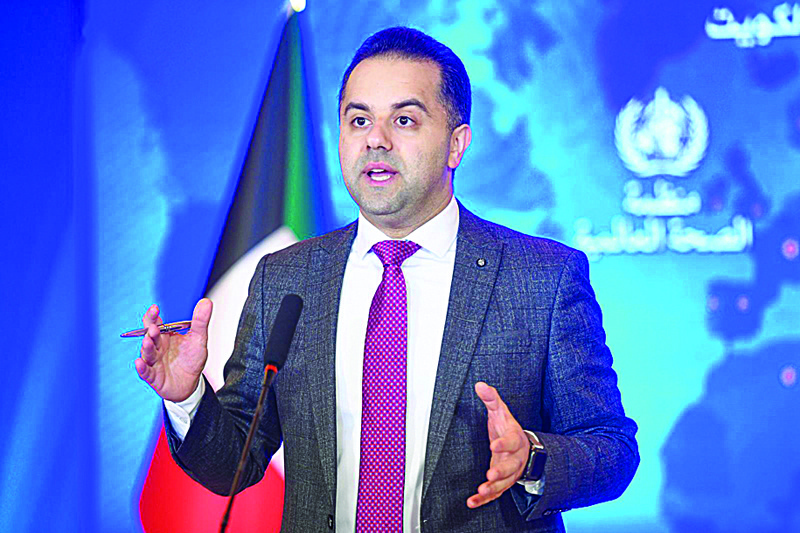KUWAIT: The Kuwaiti Ministry of Health announced yesterday kicking off registration for taking winter diseases' vaccines for the age category starting from six months. The ministry's official spokesperson Dr Abdullah Al-Sanad said in a statement registration for winter illnesses' immunization is available on the ministry's website.
Dr Sanad added that the booster jab against the coronavirus is still being given at the Kuwait Vaccination Center in Mishref, noting that taking the booster shot does not require an advance booking. However, at primary health care centers, an applicant must register on the ministry's official website and show up at the center according to the set date sent via text message. The booster shot is given six months after taking the second dose of any of the accredited vaccines, he said.
Meanwhile, the Kuwait Cancer Control Center (KCCC) of the Ministry of Health has recently approved a diagnostic service, the first of its kind in the Middle East, concerned with diagnosing breast cancer and evaluating response to hormonal therapy.
Director of KCCC Dr Hadeel Al-Mutawa said Friday that the new service that has been approved in the Nuclear Medicine department is based on the use of a substance known as 18F-FES, a positron radiation material concerned with diagnosing hormone receptors for breast cancer patients. Breast cancer ranks first as the most common type of disease locally and globally, she explained, noting that early detection as well as the effectiveness of the treatment used increases the cure rate.
In a similar statement, Head of the Radiology Department at KCCC Dr Mashael Bandar underlined the keenness to produce new materials to keep pace with the latest global developments. In turn, the Head of the Nuclear Medicine Department at KCCC Dr Farida Al-Kandari stressed the importance of the new diagnostic service, as it includes diagnosing the spread of the disease and the possibility of recurrence of infection. Kandari clarified that the material used is approved by the US Food and Drug Administration.
Meanwhile, Head of the Radioactive Materials Department Shadha Naji indicated that the aforementioned material was successfully produced in October, and the approvals and documentation necessary to start production were completed, as of Thursday, for two cases in the Nuclear Medicine department. It is worth noting that the positron emission tomography (PET) scan forms an image that shows where cancer cells with estrogen receptors can be found in the body. KCCC was established in 1968 and aims to provide care for cancer patients in Kuwait. - KUNA


